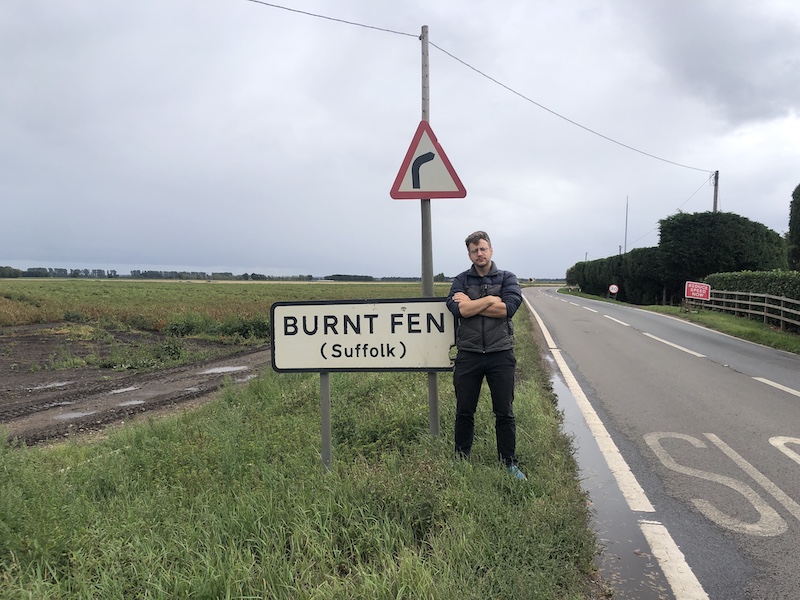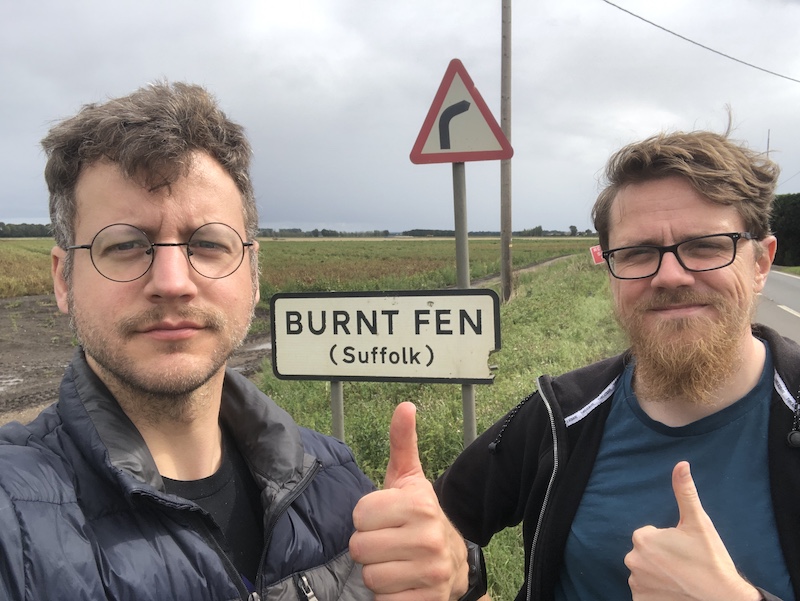Published on 23 October 2025
I recently had the immense joy of visiting Burnt Fen. No, I’m not talking about this website.
The name in Burnt Fen has a rather long history. In high school, I was eager to break away from the yoke of Christian evangelicalism that I grew up under. One of the logical reasons I used to nurture budding atheism was the argument that ex nihilo nihil fit. This phrase has normally been used to justify the continued existence of all matter, and by creationists to point to the idea of God – nothing comes out of nothing, so all of this world must have come out of something. I’ve never understood that. God must have come out of something, too, if the logic is applied. For me, the argument was just as useful for showing that the existence of the world isn’t in itself a proof of God having created it. There’s no way to know, one way or the other, what caused it.
I was perusing The Strand, a bookstore in New York, when I found a hardcover copy of W.B. Yeats’ plays. On the inside cover, a Richard L. Fenn had written their name. I felt connected to that name, not least because it was so similar to mine. Fenn is an acrostic for ex nihilo nihil fit. And, since as long as I can remember, I have always loved swamps, bogs, vernal pools, and wetlands in general. I’ve always wanted to be near them, to find salamanders and turtles and life in them. Fenn seemed as good a name as any for a pseudonym. I tried it on for a while, mostly written underneath really bad poems.
In college, I started a webcomic. I wanted to write something like Buttercup Festival, a comic I continue to love (and David Troupes, the author, has a Patreon you should all support). I needed a url and a name. I thought of fenn.co.uk, but that was taken. Reading my copy of the Oxford English Dictionary with a magnifying lens, I found that fenne was an old variant spelling for fen, and that couk (from co.uk) was a variant spelling of coke, a byproduct of smelting. I thought that sounded pretty cool. Fenne.co.uk. I figured I would call the comic Dragon Ash to be more acceptable.
The problem is that there was already a Japanese band called Dragon Ash. They’re still going. I didn’t really understand copyright law very well, so I went back to the drawing board. I learned that Burnt Fen was a place in England which had been a large fen, and where Hereward the Wake, a real-life precursor to Robin Hood, had marauded from. I added a pretentious name for wandering on the end, and called my comic The Burnt Fen Maunderings.
The comic was not good. Some of the strips were alright.
It didn’t matter much. I ended up buying burntfen.co.uk, and eventually just burntfen.com. Years later, I needed a name for an LLC to show I was more respectable than I was, so I founded Burnt Fen Creative LLC, and set up gmail on the domain. I’ve been using burntfen.com and Burnt Fen Creative ever since.
Every few years something happens that reminds me that Burnt Fen is still a place. I was overjoyed to learn at some point that https://www.burntfen.co.uk/ had been rebought, and was now used for an alpaca farm from Norfolk. That’s the best!
This September, I travelled to see my friend Stephen Kyle in Ely, near Cambridge. I had planned a few days at his house to get over jetlag before I attended RSECon in Warwick. We luckily had a day or two to hang out before he left me alone for the weekend to convalesce. Besides dragging him around all of the RSPB sites in the land to find rare birds, we had one outing that was absolutely essential - a trip to Burnt Fen.
Burnt Fen used to be a part of the fenlands - a vast area of England that was both covered in water half the year and exceptionally productive in terms of waterfowl, eels, and human life. It was an excellent example of a well-run, community-driven commons, where people worked together collectively to manage nature and their own livelihoods without excess for thousands of years. This only changed when wealthy landowners ignored the people’s needs, drained the swamps, and sent militia to deal with any dissenting opinions.
Burnt Fen itself is fairly unexceptional; it’s a sign on the road, mainly. The area is now mostly plowed fields, as this is England’s breadbasket. But even a sign is worth photographing. I doubt that anyone has ever travelled from New Zealand to see Burnt Fen itself - although the author of Imperial Mud, James Boyce, a Tasmanian, comes very close. (It’s a great and very readable book, and has a surprising amount in common with open source and the defense of the commons. It even mentions Ostrom!).
So, almost twenty years after I first bought the domain, I finally have been to the actual Burnt Fen. Here’s a photo. Thanks Steve.

